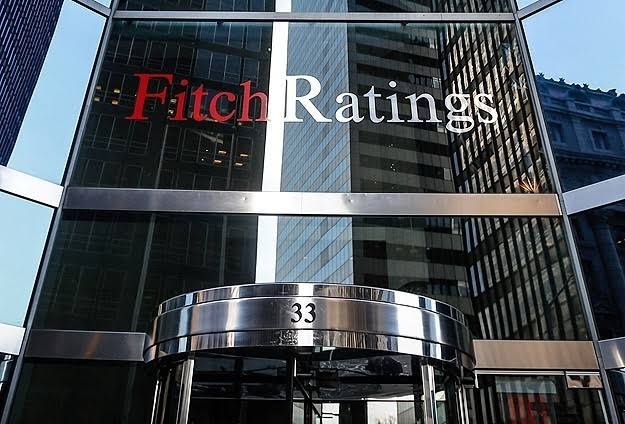Fitch's Positive Reassessment of Egypt's Outlook
Fitch Ratings agency upgrades Egypt's economic outlook from stable to positive, reinforcing confidence in foreign investments and currency flexibility amid regional unrest.
Published May 05, 2024 - 00:05am

Image recovered from shorouknews.com
Fitch Ratings agency has shifted its future outlook on Egypt from stable to positive, affirming the country's credit rating at 'B-'. This positive reassessment is a reflection of decreased external financing risks and the robustness of direct foreign investment. According to the agency, these initial steps to contain off-budget spending should aid in diminishing public debt sustainability risks and elevate confidence in Egypt's exchange rate flexibility expected to last longer than before.
The agency forecasts an increase in foreign currency reserves, projecting them to reach $53.3 billion in the coming fiscal year and $49.7 billion by the end of the current fiscal year. Notwithstanding these optimistic projections, Fitch warns of potential hazards associated with regional conflicts that might affect tourism revenues with an estimated 6% decline, and a 19% decrease in Suez Canal earnings this year.
Alongside these financial forecasts, Fitch signals the possibility of socioeconomic instability due to rising inflation rates and structural challenges facing the country. Acknowledging the extensive financial support from the International Monetary Fund, with an agreed-upon $8 billion aid, the agency also considers Egypt's strides towards debt reduction and control of off-budget expenditure vital for economic stability.
The analysis by Fitch Ratings echoes the sentiment of Moody's, which earlier adjusted its outlook on Egypt to positive in early March, while maintaining the rating unchanged due to high government debt levels and relative debt sustainability compared to its peers. With close monitoring under the Extended Fund Facility program with the IMF, which is set to continue until late 2026, Egypt's financial reforms seem to be on a track that international rating agencies find increasingly viable.
Fitch Ratings' optimistic shift towards Egypt's economic future is built on several other factors that bolster the country's prospects for sustainable growth. A crucial element in Egypt's current trajectory is the extensive reform program that the government has undertaken, which is closely aligned with the IMF's recommendations. These reforms cover a wide spectrum of economic policy adjustments, including the liberalization of the exchange rate, which has made Egypt's exports more competitive and, as a result, has attracted a higher volume of foreign investment.
The structural reforms undertaken by Egypt have also paved the way for improved fiscal discipline and governance. These include measures to enhance public financial management, which in turn have led to more efficient allocation of resources and a reduction in wasteful expenditures. Despite the challenges of the pandemic, the Egyptian government's commitment to reform has remained steadfast, further cementing the confidence of international agencies and investors alike.
Investment in infrastructure and the energy sector is another critical driver of Egypt's economic growth. The country has made significant strides in developing its natural gas resources and in upgrading its electricity and renewable energy infrastructure, fueling not only domestic growth but also positioning Egypt as a potential energy hub in the Eastern Mediterranean region. This diversification of the economy has reduced reliance on more volatile sectors and is expected to provide more stable revenue streams going forward.
Furthermore, Egypt's strategic location and the expansion of the Suez Canal have increased its logistical appeal to international trade, even amidst the decline in revenues for the current year. The long-term prospects suggest that the canal will continue to be a significant source of revenue, especially with the ongoing global recovery in trade and shipping activities. In addition to maritime trade, the development of industrial zones near the canal presents opportunities for further economic diversification and job creation.
However, Fitch Ratings has duly noted the broader challenges that Egypt faces. While the economic indicators appear favorable, the socio-political landscape remains a variable that requires careful navigation. The Egyptian government has to balance economic reform with maintaining social cohesion, especially in the context of rising global food prices, which could exacerbate the inflationary pressure in the country. A substantial segment of the Egyptian population remains vulnerable to economic shifts due to poverty and unemployment, and the government’s ability to address these issues is crucial for ensuring long-term stability.
In the global context, Egypt's economic outlook will also be shaped by external factors such as the pace of recovery from the COVID-19 pandemic, international market trends, and the geopolitical climate. Particularly, the country's tourism sector, which is a significant contributor to its GDP, relies heavily on global travel norms and perceptions of stability within the region. Recovery in this sector post-pandemic will be crucial in bolstering Egypt's economic resurgence and employment rates.
Egypt's debt management strategy has been marked by cautious optimism. Despite the high levels of government debt, the country's approach to managing its liability profile has involved lengthening the maturity of its debt and diversifying its investor base. This strategy aids in mitigating the risks associated with debt rollover and provides a more secure framework for fiscal planning. Additionally, securing lower-cost funding through multilateral partnerships, such as the IMF aid agreement, also points to Egypt's proactive stance in managing its financial obligations.
The combination of robust foreign investment, prudent fiscal policies, and strategic economic reforms underscores Fitch Ratings’ decision to enhance Egypt's rating outlook. With sustained commitment to the ongoing reforms and effective management of internal and external challenges, Egypt stands poised to solidify its economic standing and achieve more stable and inclusive growth. While the road ahead may present hurdles, the groundwork laid by the government's policies indicate a trajectory of recovery and resilience, promising a more positive chapter in Egypt's economic narrative.


:quality(70)/cloudfront-eu-central-1.images.arcpublishing.com/irishtimes/SV5HVQWI7BV6H65746THQB7QAM.jpg)




